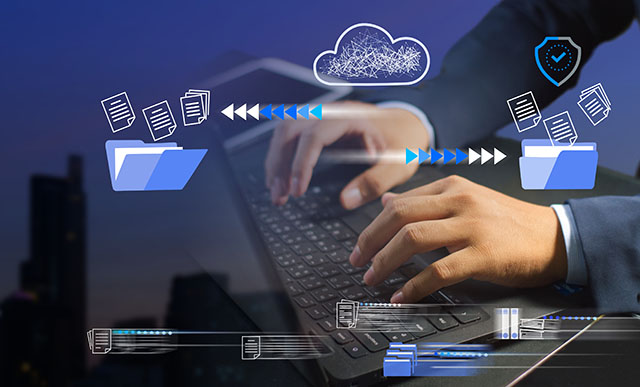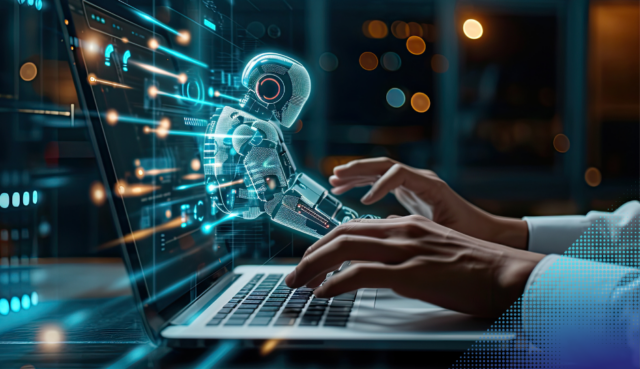Experience the Power of AI Autonomy
Meet the Authors
Key Takeaways
⇨ AI agents represent a significant evolution in artificial intelligence, capable of making autonomous decisions, understanding business context, and improving efficiency by analyzing complex tasks without human intervention.
⇨ The integration of AI with connected enterprise systems unlocks the potential for enhanced decision-making and operational efficiency, as AI can access and process vast amounts of data across departments in real-time.
⇨ Organizations are increasingly adopting platforms like SAP Joule and others to build customized AI agents for specific tasks, enabling seamless collaboration among various business functions and optimizing workflows through multi-agent interactions.
AI chatbots. AI Assistants. AI Copilot. And now, Autonomous AI Agents. Understanding business context, planning, reasoning, analyzing complex tasks, decision-making, all while learning and improving from experience, and adapting in real-time – AI agents are capable of such actions and more. This is the time when technology is moving beyond the “creating” mode toward making human-like decisions, powered by machine learning, large language models (LLMs), Natural Language Processing (NLP) and neural networks as the guiding intellect.
In technical terms, AI agents are advanced software programs that run autonomously within specific metrics or guardrails, using AI-based reasoning for decision-making to achieve specific objectives. With the capability to reason based on the logic and context they are trained on, AI agents can operate with or without human intervention.
AI agents present GenAI’s evolution, progressing from generating content step-by-step to completing entire sequences of tasks independently. This transition transforms AI from a mere productivity tool to a powerful tool for managing interconnected business operations. For example, instead of a retail chatbot that just answers customer questions, AI agents can connect to an organization’s data systems to analyze past interactions and preferences. This enables the chatbot to provide a personalized experience, like suggesting products based on previous purchases and offering detailed product information.
Explore related questions
A Game Changer for the Enterprise
Business operations have been catalyzed by the integration of AI and enterprise systems. But enterprise data is the pivot on which AI operates and automates complex processes. By tapping into an expanded enterprise data landscape, AI enables better decision-making. However, the key to unlocking these capabilities is data accessibility through connected enterprise systems. With connected and unified systems, AI can access data across departments—from customer experience to supply chains operations and even finance. For instance, the uninterrupted data flow between SAP S/4HANA and other business systems, such as CRM or Salesforce, allows AI to generate comprehensive real-time insights.
But automation is only a part of what AI can do. AI agents offer other benefits to enterprises like generating and acting on data-driven insights for enhanced efficiency. Because AI agents have the capability to process huge amounts of data along with the capability to learn and adapt, they can make autonomous decisions based on the past and current sensory inputs or information. For example, in manufacturing, AI agents can predict unforeseen demand shifts after considering market trends and seasonal variations or carry out predictive maintenance by identifying potential hardware or network issues before they happen and proactively sending security alerts to prevent any risks. In customer service, AI agents can use historical data to predict customer demands and preferences or manage a high volume of inquiries, especially during busy periods, by sorting and prioritizing questions.
The Era of BYOA (Build Your Own Agent)
From Google’s Vertex AI Agents to the recently launched Salesforce’s Agentforce and Microsoft’s Copilot Studio AI Agents, organizations are exploring the depths of AI landscape. Organizations can now customize AI agents for a particular industry or purpose and assign tasks to it. This requires outlining the topics and the job description with natural-language instructions and setting guardrails to ensure that the agent’s responses are relevant.
In SAP’s context, this is Precisely what SAP Joule does. SAP enhanced its generative AI copilot Joule and developed it into a “cooperative multiagent system” that now integrates function-specific AI agents such as supply chain agents, procurement agents, finance agents – all on Joule’s agent platform. Using SAP’s extensive tools and data resources, Joule not only connects teams across the business but with SAP Knowledge Graph, Joule collects relevant data to enable a multi-agent solution, unifying various functions of the business. In multi-agent collaboration scenarios, AI uses expanded knowledge and data resources to connect multiple teams, collect relevant data to design a multi-agent solution to make better decisions and go beyond merely automating complicated problems. AI agents, business experts trained in their own functions, will be able to create an automated chain link where output from one agent will be fed into the next for a workflow. For example, SAP showcased AI agents for dispute management at TechEd conference this year where autonomous AI agents analyze and resolve dispute resolution cases that includes incorrect and missing invoices, unapplied credits and denied or duplicate payments. Similarly, for financial accounting, autonomous AI agents can automatically handle and simplify bill payments, processing invoices, and updating ledgers while identifying and correcting any errors or inconsistencies, enabling speed and accuracy for better business outcomes. Organizations can also build their own Joule agents as SAP now supports this through SAP Build.
Conclusion
While organizations are still to realize the benefits of AI and automation, SAPinsider’s research on AI Adoption reveals that challenges with legacy data and applications are the biggest roadblocks to AI implementation. Data is at the heart of AI applications and implementation and is also the biggest pain point for organizations. This ties back to why organizations need to transition systems like SAP S/4HANA to the cloud and centralize their data because AI accuracy relies on clean, accurate, and unified data for prediction reliability and error minimization. Cloud migration and clean data create a powerful foundation for leveraging AI to its full potential, enabling businesses to make smarter, data-driven decisions.









